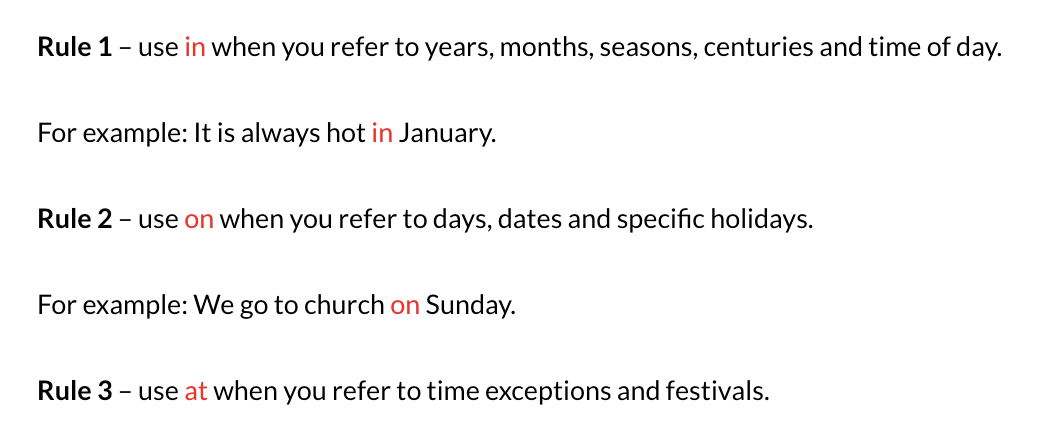ref – https://www.basic-english-grammar.com/8-types-of-prepositions-in-english-grammar-with-examples.html
When you refer to something with a surface, use preposition on
The clock hangs on the wall.
The books are on the table.
The names are etched on the tombstones.
The graffiti on the wall must be removed.
When you refer to something inside or confined, use in.
The cookies are in the cabinet.
The ice cubes in the glass are melting.
David left the book in the car.
When you refer to a specific point in time or place, use at.
I will meet you at midnight.
Let’s meet up at Terry’s.
Rebecca will meet us at 8pm sharp.
The group will congregate at the church.
Use in when you refer to years, months, seasons, centuries, and time of day.
Disco was popular in the 70s. (years)
Life was hard in the 19th century. (centuries)
It is always humid in the Summer. (seasons)
It is always hot in January. (months)
The light is always perfect in the morning and in the evening, but way too bright in the afternoon. (time of day)

Use on when you refer to days, dates, and specific holidays.
I have tuna sandwiches on Mondays, Wednesdays, and Fridays. (day)
I workout only on the weekends. (day)
I want to give you a gift on this special day because you are my best friend. (day)
On August 6th, 1920, my beloved grandmother was born. (dates)
On June 6th, 1946, Allied troops stormed Omaha beach in West Germany. (dates)
I always get a lot of present on Christmas. (holidays)
Shoppers are often frantic on New Year’s Eve. (holidays)
Use at when you refer to time exceptions and festivals.
We’ll be having fun at Mardi Gras! (festival)
I work best at night. (time exception)
Let’s do this at two o’clock. (time exception)
I’m feeling down at the moment. (time exception)